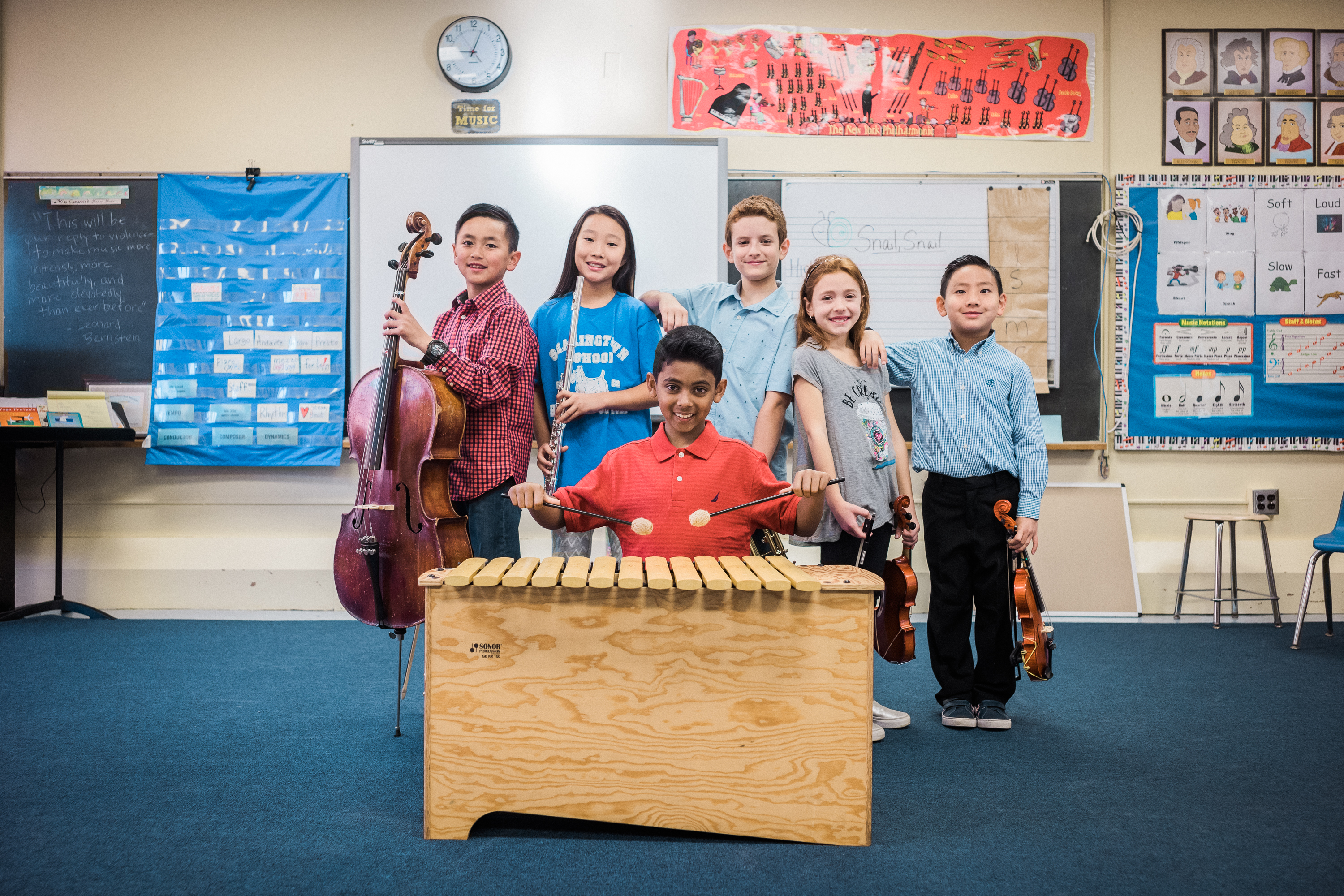Music Research-Kids
Music Research for Kids
Everyday listening skills are stronger in musically-trained children than in those without music training. Significantly, listening skills are closely tied to the ability to: perceive speech in a noisy background, pay attention, and keep sounds in memory.
- Strait, D.L. and N. Kraus, Biological impact of auditory expertise across the life-span: musicians as a model of auditory learning. Hearing Research, 2013.
Researchers found that after two years, children who not only regularly attended music classes, but also actively participated in the class, showed larger improvements in how the brain processes speech and reading scores than their less-involved peers.
- Nina Kraus, director of Northwestern’s Auditory Neuroscience Laboratory, quoted in Melissa Locker, "This Is How Music Can Change Your Brain," Time, December 16, 2014.
Music training leads to greater gains in auditory and motor function when begun in young childhood; by adolescence, the plasticity that characterizes childhood has begun to decline. Nevertheless, our results establish that music training impacts the auditory system even when it is begun in adolescence, suggesting that a modest amount of training begun later in life can affect neural function.
- Adam T. Tierney, Jennifer Krizman, Nina Kraus, "Music training alters the course of adolescent auditory development," Proceedings of the National Academy of Sciences, 2015.

Research shows that making music changes the brain and that these brain changes have tangible impacts on listening skills, learning and cognition.
- (2017). Music, hearing, and education:, from the lab to the classroom; quoted in Northwestern University, September/October 2017.
Individuals who took music lessons as children show stronger neural processing of sound: young adults and even older adults who have not played an instrument for up to 50 years show enhanced neural processing compared to their peers.
- (2017). Music, hearing, and education:, from the lab to the classroom; quoted in Northwestern University, September/October 2017.
Students in high-quality school music education programs score higher on standardized tests compared to students in schools with deficient music education programs, regardless of the socioeconomic level of community.Nature Neuroscience, April 2007
- Nature Neuroscience, April 2007.
